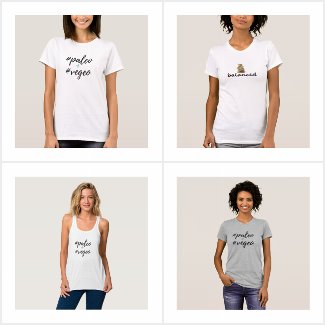Sometime as an empath I can throw on the headphone and ignore my surroundings. Other times not so easy. Sometimes I just grab out my essential oils, inhale and start asking lots of questions to try to stop the moment before it gets worse. Just the other day some women kept making me cough, which is usually connected to entities. However it wasn't fun for me, and I was not in a position to leave the situation. Also when I am driving down the freeway and someone things about changing lanes, it can really freak me out because it feels like they are going to change lanes - now. Living in someone else's emotions is something that so many of us do. It opens us up to the narcissistic people in our lives, if we can't figure it out and let it go. One of the tools that has helped me calls family - F—ed up and mainly interested in limiting you! Those narcissistic people may even be in your family. It's about an awareness that you aren't the emotion, that you aren't the solution, and that you are your own being that will help you out the most.
People wonder what empath and empathy have in common. It may seem like being an empath is very similar to feeling empathy because as an empath we have the ability to share someone else's experience. The truth is that as empaths we tune into another living creature's experience intuitively, and so we are almost what I would describe as being inside of the empathy, rather than feeling empathy. As well, being an empath has nothing to do with compassion, because generally you would rather NOT keep feeling those emotions, although you feel a pull to do something, anything about them. So today I wanted to talk about empathy and compassion a little bit.
Though empathy and compassion are similar concepts, they differ from each other in key ways. Empathy involves being able to understand the feelings of another or to mirror their emotions in order to demonstrate this understanding. In essence, empathy is felt when an individual demonstrates an emotional response, usually one of distress, based on the unfortunate state of another. This concept goes beyond sympathy or simply feeling bad for someone, which can be perceived as shallow. To be empathetic is to be moved to actually feel something similar to what another is feeling, to demonstrate an understanding of that other’s experience.
Empathy has a number of benefits, primarily relevant to navigating the world around you. It can help you to be tuned into others you encounter in your everyday interactions, leading you to relate to even casual associates in socially appropriate ways. Empathy is a crucial element of most social and interpersonal relations. Being an empath doesn't always have that benefit. Healthy bonds between parents and their offspring depend upon the caregiver possessing adequate empathy to be able to anticipate the feelings of their offspring throughout development in order to forge a dynamic connection. However having an empath pain because as a child and parent you are too connected, can be something hard to understand. I empathed myself through an entire year of sleeping because when my child felt tired, I thought I was as well. When my child was dealing with anxiety from her gut, I felt it too. There is an affinity for and understanding of others is particularly unhealthy for those of us that are empaths if we can't figure out how to disconnect from those around us. Empathy is an underlying foundation of human connection, that is truthful, but it's not always a great feeling to live inside of that emotion that isn't yours.
So what about compassion. Compassion differs from empathy in its outcome. It involves caring about others and feeling concern for their state of being. While there are feelings intertwined with compassion, the focus of the concept is on action rather than emotion. Compassion involves a motivation to assist those in need. Those who are compassionate possess an awareness of others’ issues that leads them to take steps to alleviate their discomfort. Empaths often head into careers that require compassion because they confuse this continual connection with others as their life purpose. It is not.
Compassion is the driving force behind social connections. It’s what leads parents to meet the ever-demanding needs of their children. It plays a strong role in relationships between adults, too. Compassion is what leads us to act on behalf of our friends and loved ones, to do those little things that strengthen our relationships. It has been shown to actually aid in making people healthier by improving regulation of thought and emotion, as well as helping to manage the effects of stress. Compassion is a crucial element in altruism and charity. It’s what causes us to want to do something in the aftermath of disasters or tragic events. It doesn't mean that you have to fix everyone. Empaths often find themselves on the low end of the totem poll because they think they have to help, and that they have to serve. Serving and helping others doesn't have to be at a determent to your own well-being. That was something that took me decades to figure out. I had to learn to disconnect from others when it wasn't needed. I have had to learn to ask if what I am feeling is my own. And I have found that using energy as a part of my process opened me up to a better knowing of how this desire to help others can really just be a spark for joy, and something even bigger.
Hopefully, this overview has given you a better understanding of those empaths around you a little better, and the ways in which emotions influence both individuals and those around you struggling to work their way out of the empath rabbit hole. Knowing the difference between these, along with the ways in which they are beneficial, can lead to assisting you to incorporate change into your own life.
Empathy has a number of benefits, primarily relevant to navigating the world around you. It can help you to be tuned into others you encounter in your everyday interactions, leading you to relate to even casual associates in socially appropriate ways. Empathy is a crucial element of most social and interpersonal relations. Being an empath doesn't always have that benefit. Healthy bonds between parents and their offspring depend upon the caregiver possessing adequate empathy to be able to anticipate the feelings of their offspring throughout development in order to forge a dynamic connection. However having an empath pain because as a child and parent you are too connected, can be something hard to understand. I empathed myself through an entire year of sleeping because when my child felt tired, I thought I was as well. When my child was dealing with anxiety from her gut, I felt it too. There is an affinity for and understanding of others is particularly unhealthy for those of us that are empaths if we can't figure out how to disconnect from those around us. Empathy is an underlying foundation of human connection, that is truthful, but it's not always a great feeling to live inside of that emotion that isn't yours.
So what about compassion. Compassion differs from empathy in its outcome. It involves caring about others and feeling concern for their state of being. While there are feelings intertwined with compassion, the focus of the concept is on action rather than emotion. Compassion involves a motivation to assist those in need. Those who are compassionate possess an awareness of others’ issues that leads them to take steps to alleviate their discomfort. Empaths often head into careers that require compassion because they confuse this continual connection with others as their life purpose. It is not.
Compassion is the driving force behind social connections. It’s what leads parents to meet the ever-demanding needs of their children. It plays a strong role in relationships between adults, too. Compassion is what leads us to act on behalf of our friends and loved ones, to do those little things that strengthen our relationships. It has been shown to actually aid in making people healthier by improving regulation of thought and emotion, as well as helping to manage the effects of stress. Compassion is a crucial element in altruism and charity. It’s what causes us to want to do something in the aftermath of disasters or tragic events. It doesn't mean that you have to fix everyone. Empaths often find themselves on the low end of the totem poll because they think they have to help, and that they have to serve. Serving and helping others doesn't have to be at a determent to your own well-being. That was something that took me decades to figure out. I had to learn to disconnect from others when it wasn't needed. I have had to learn to ask if what I am feeling is my own. And I have found that using energy as a part of my process opened me up to a better knowing of how this desire to help others can really just be a spark for joy, and something even bigger.
Hopefully, this overview has given you a better understanding of those empaths around you a little better, and the ways in which emotions influence both individuals and those around you struggling to work their way out of the empath rabbit hole. Knowing the difference between these, along with the ways in which they are beneficial, can lead to assisting you to incorporate change into your own life.









































0 comments:
Post a Comment